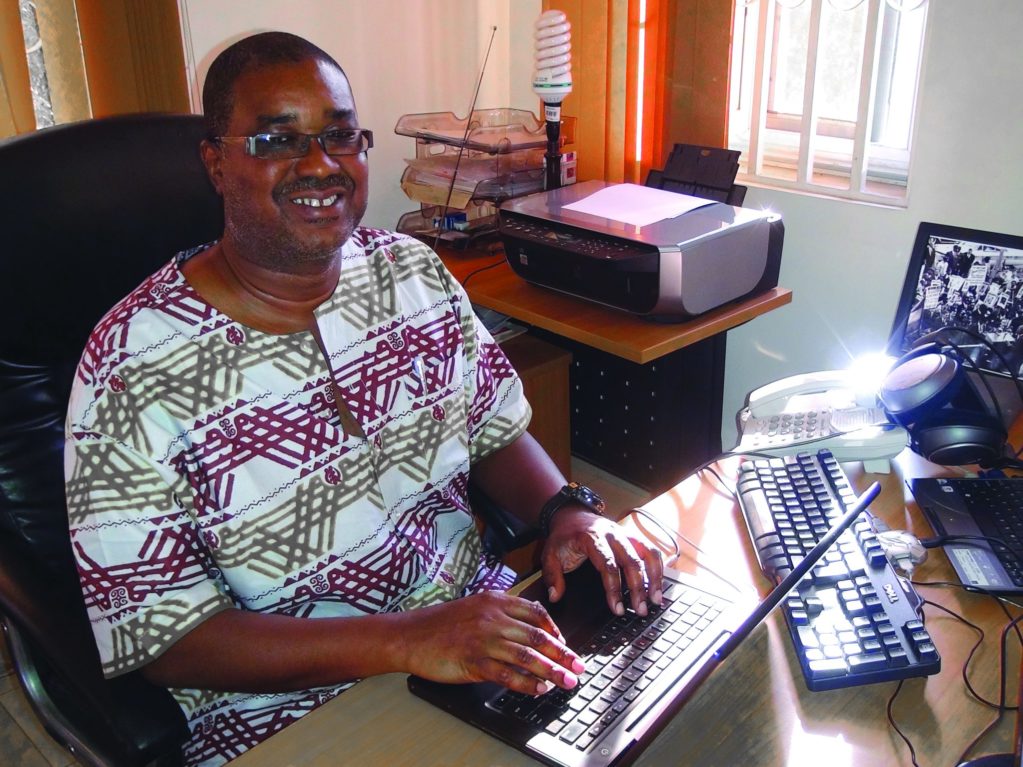As former United Nations Secretary-General Kofi Annan observed in his Millennium Report, “New technology offers an unprecedented chance for developing countries to ‘leapfrog’ earlier stages of development. Everything must be done to maximize their peoples’ access to new information networks.” Information and communications technology (ICT) is considered an important tool for growth in developing economies.
Not only does ICT have immense benefits to an economy but some argue that, in an increasingly globalized economy, countries that fail to get connected will fall even further behind. One such proponent of this argument, and a man who is passionate about preventing Ghana from such a dismal fate, is Herman Chinery-Hesse, the founder and chairman of SOFTtribe, the largest indigenous software firm in Ghana.
Born to civil servant parents in Dublin, Ireland, Chinery-Hesse and his two siblings grew up in many African and European cities. This may have contributed to his restless desire to discover new things. He attended Westlake High School in Texas and then graduated from Texas State University with a degree in manufacturing and engineering technology. Chinery-Hesse then moved to London where he worked as a manufacturing engineer. It was here that he discovered his love for software.
“I was working for a company who were carrying out the computerization of the company and they selected me to be part of the team because I was schooled in the States, hence it was assumed I would be good at programming,” he says.
With some basic experience in robotics, Chinery-Hesse took up the challenge and learned everything he needed to know about the new computerization software. After a short period of time, he mastered the programming and was managing the company’s new production system.
Loading...
This was when his love for programming was born.
“I liked programming more than engineering because you can see the results of your work straight away, with engineering you can spend your whole lifetime just building a bridge,” he says.
Chinery-Hesse already had a basic knowledge of programming. While in college, he and his roommate used software programming to generate call cards to make illegal calls. However, his skills were honed when he was in Britain. With his first paycheck he bought a computer and taught himself programming. His skills developed so well, he quit his engineering job and started programming and consulting from home.
Despite his success, Chinery-Hesse missed Ghana.
“The pan-Africanist in me never wanted to stay abroad, so I packed my stuff after a while, came back to Ghana for a holiday and never went back,” he says in his usual offhanded and matter-of-fact way.
On his return to the motherland, Chinery-Hesse had to decide whether to do manufacturing or programming. He originally chose manufacturing but realized there was one key barrier in his way.
“I didn’t have any money to set up a factory, but I had a computer and that was my factory.”
Chinery-Hesse set up his ‘factory’ in his bedroom with one computer and began programming. His company, SOFTtribe, grew organically with no major investment. Soon, Chinery-Hesse developed enough software programs to buy a second computer and then a third. His first client was a friend who, about 20 years ago, gave him a contract to computerize his farm for around $4,000. Without properly assessing how much work needed to be done, Chinery-Hesse accepted the challenge and began working. Other contracts, with clients such as Expertravel and Ghana Airways, soon followed.
At a time where information technology was almost non-existent in Africa, it was a risk to start his business.
“[President Kwame] Nkrumah told me there was nothing I could not do. If we want to build rockets, we can build rockets, it is just a matter of decision,” says Chinery-Hesse.
Following the dream of the man who led Ghana to independence, Chinery-Hesse was determined to prove that information technology was the way forward. There were challenges; in those days, a lot of clients had no idea what they needed and Ghana also has a culture of preferring not to pay for services.
Chinery-Hesse had to be innovative in his approach. He decided to package products, which provided key services, and sell it. SOFTtribe marketed and sold all its products to different sectors. Point of sale software was created for all the major multinationals, networking platforms developed for small businesses, as well as solutions for oil and gas, software products for the agriculture sector and consumer products for households.
SOFTtribe immediately made a turnover and doubled its growth each year until, at its peak, it had over 100 employees. Inevitably, the company had to move from Chinery-Hesse’s bedroom to its own office. Today, SOFTtribe is the most significant player in the software market in Ghana.
With growing competition from established brands, like Oracle, Microsoft and IBM, SOFTtribe is one of the last indigenous Ghanaian software firms still fighting the good fight.
Chinery-Hesse believes the government should do more to help local business win contracts and provide services that local business’ can utilize.
“When you help a foreign company set up in Ghana, they make money and transfer their money into dollars and ship it out of the country, which causes greater strain on the cedi,” says Chinery-Hesse.
Local business, like SOFTtribe, will keep the money within the Ghana’s borders and create more jobs for Ghanaians.
Chinery-Hesse believes Africans have the power to solve Africa’s problems. With SOFTtribe, he has proved this.
Loading...
